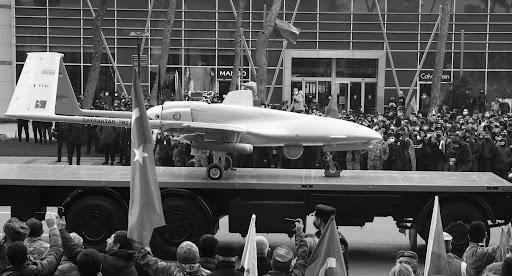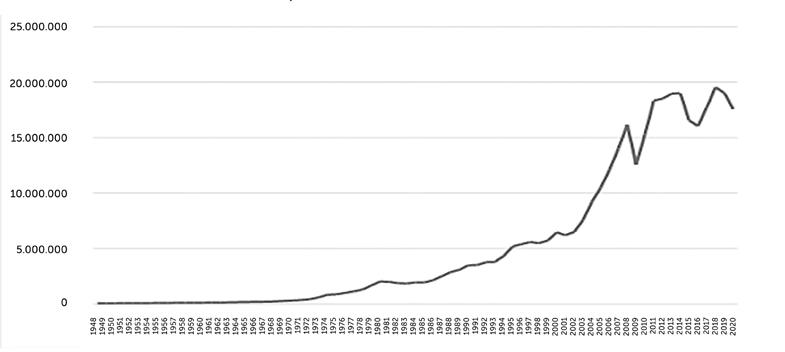FEDERICO N. FERNÁNDEZ & FRANCO MARTÍN LÓPEZ
international dependence, and that industrialization replicated concentrated, capitalist, and oppressive social structures inside each country to the detriment of the labor class and favoring skilled managerial positions instead of the workers. It also stated that imported technology displaced laborers from the market. More extreme Marxist positions would arise around these basic ideas regarding economic oppression11. The central concept of technological dependence that instituted asymmetric relations between the center and the periphery of the international commerce system in favor of developed countries was only to be avoided by strong state action that appropriated and led the technical and economical process12. This internal debate was then propagated by institutions related to ECLAC – like the Latin American Faculty of Social Sciences created in 1957 and the 1967 Latin American Council of Social Sciences, both under the United Nations Educational, Scientific, and Cultural Organization. These organizations would promote the discourse and fund the professionals that developed the structuralist school in the subcontinent. In parallel, the Alliance for Progress initiated by U.S. President John F. Kennedy in 1961, aimed to establish economic cooperation between the U.S. and Latin America after the Cuban revolution, was also promoting structuralist ideas, especially developmentalists ones, until its disbandment in 1973. 11 Zeolla, N.H. and J.M. Telechea (2014) El pensamiento económico latinoamericano del desarrollo y la industrialización: estructuralistas y neoestructuralistas ¿Giro o actualización?, Centro Cultural de la Cooperación Floreal Gorini, 21st Edition. Available [online]: https:// www.centrocultural.coop/revista/21/el-pensamientoeconomico-latinoamericano-del-desarrollo-y-la-industrializacion [in Spanish] 12 Etchebarne, A. (2008) “Los términos de intercambio y el cambio tecnológico”, [in]: Revista de Instituciones, Ideas y Mercados, Vol. 48.
137
PREBISCH ARGUED THAT THE PROBLEM OF THE UNDERDEVELOPED (PERIPHERAL) COUNTRIES WAS NOT THAT THEY WERE LAGGING BEHIND THE DEVELOPED COUNTRIES, BUT THERE WAS A STRUCTURAL PROBLEM THAT PREVENTED THEM FROM DEVELOPING Back in Argentina, with the Peronist Party outlawed, the historic Unión Cívica Radical party governed from 1958 to 1962 under the Frondizi presidency. Aided by Rogelio Frigerio, he implemented a developmentalist policy in Argentina until they were ousted by yet another military coup. The interventionist economic policy would not change much, presenting a brief re-apparition of Pinedo in the military government as Economy Minister. With the return of the Unión Cívical Radical party to power from 1963 to 1966, developmentalist policies






